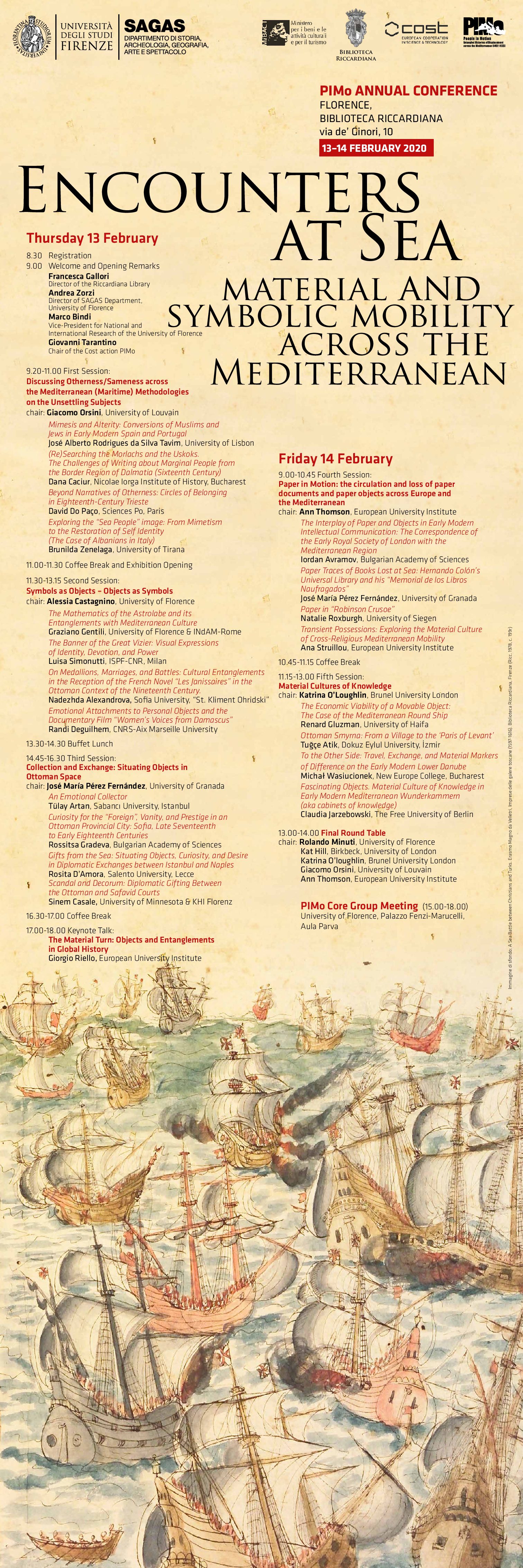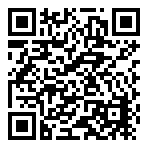
1st PIMo Annual Conference
Encounters at Sea: Material and Symbolic Mobility across the Mediterranean
The inaugural PIMo conference provides a series of papers that constitute the first approach to the main subjects of our COST Action and its four Work Groups. The geo-cultural space of our research is constituted by the historical relations between the Northern shores of the Mediterranean and its neighbours to the East and South. The presentations explore the movement of people, ideas, paper and objects through Mediterranean encounters: some of these are peaceful exchanges, made through travel, trade and diplomacy; others constitute acts of a more aggressive and traumatic nature—enslavement, occupation and exile.
One of the overarching themes of this research meeting is a shared consideration of material and symbolic motion across the Mediterranean and its different regions. This includes, for example, those emotional upheavals provoked by the enforced displacement of individuals and communities (e.g. exile, enslavement, or migration, inter alia). The exchanges considered by conference participants also include the circulation of scientific information, as well as the production and reception of literary texts encoding perceptions of cultural otherness. The conference will focus particularly closely on objects not only as materials in motion, but as vehicles of symbolic significance, codifying ideas and emotions, and contributing to the formation and consolidation of a wide range of identities. These significant objects include emblematic artefacts such as ensigns, relics, and family heirlooms, but also technical instruments like the astrolabe which, beyond its function as a scientific tool for the establishment of a position at sea, can also be understood as an omnipresent, transcultural symbol of Mediterranean mobility.
The symbolic power of objects of such diverse natures in motion also manifests in collections and inventories, from relics and books, to artistic objects and curios. The exchange of emotionally-meaningful objects embodying national and religious identities are a case in point, as are the circulation of knowledge and ideas through book collecting, and the creation of libraries and museums. The latter include, in the first place, early cabinets of curiosities consisting of displaced objects from distant cultural others; these assemblages are followed by post-Enlightenment museums that result from the sort of symbolic and material appropriation prompted by colonialism. Ideas, information, and paper in motion are approached by presentations on inventories, archives, catalogues and the diverse documents that record data about individuals and activities: from the administration of a single household to institutions, trade, finance and the running of a global empire. The generation of inventories and catalogues amounts to a symbolic act of world-apprehension, the appropriation of knowledge and intellectual capital; they are, in other words, paper databases which constitute an attempt to classify information and artefacts of a very diverse nature and bring them under a single scope.


